[The Epoch Times, March 04, 2022](The Epoch Times reporter Daphra comprehensive report) According to statistics from Johns Hopkins University, as of 2:20 a.m. EST on Friday (March 4), the global The total number of cases of the CCP virus (Wuhan virus, novel coronavirus, COVID-19) exceeded 442 million (442,084,034) and the death toll exceeded 5.98 million (5,981,137).
The following are the statistics of the number of new confirmed cases and deaths in a single day in some countries on Thursday (March 3) (some data are adjusted according to worldometers):
52,292 confirmed cases in the United States and 1,743 deaths;
Canada has 6,600 confirmed cases and 114 deaths;
Australia has 35,855 confirmed cases and 45 deaths;
45,656 confirmed cases in the UK and 194 deaths;
France has 60,225 confirmed cases and 180 deaths;
Germany has 202,338 confirmed cases and 289 deaths;
India has 6,396 confirmed cases and 201 deaths;
Brazil has 64,054 confirmed cases and 594 deaths;
Russia has 93,026 confirmed cases and 781 deaths;
Japan has 71,570 confirmed cases and 232 deaths;
South Korea has 198,802 confirmed cases and 128 deaths;
Taiwan has 71 confirmed cases and 0 deaths;
Hong Kong has 56,827 confirmed cases and 198 deaths.
Here are real-time updates on the CCP virus outbreak:
NYC lifts school mask orders, restaurant vaccine orders
New York City’s mayor announced Friday (March 4) that the city will lift some of its containment measures next week, including mandatory mask orders in public schools and vaccination requirements in restaurants, entertainment and cultural venues.
Speaking in Times Square, Mayor Eric Adams said that while the COVID-19 pandemic is not over, he believes it will be safe for children and teachers to go to school without masks starting next Monday.
“We’re far from out of the woods. COVID is still here. But we’re fighting back,” Adams said Friday. He said it was time for New Yorkers to “celebrate” and implored them to “dine out this weekend.”
Individual businesses can still choose to keep those rules, but starting Monday, New York City will no longer require them to check their guests’ vaccine cards.
Government officials across the U.S. are now moving to ease COVID-19 guidelines, a move that suggests the risk of the virus’ spread is receding — at least for now.
Expats in Hong Kong: Hong Kong is now like a prison
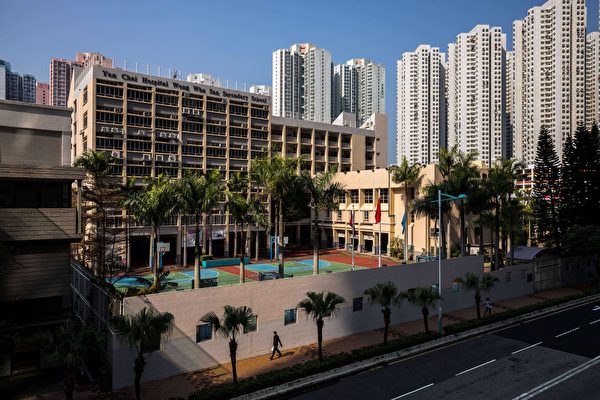
Hong Kong adheres to the CCP’s “dynamic clearing” policy and strict control and isolation measures, making it unbearable for more and more people, especially foreigners, who have to give up this global financial center and choose to leave. Some people describe Hong Kong as a prison now.
Hong Kong had a net outflow of more than 71,000 people in February, the most since the outbreak began, compared with 16,879 in December 2021, government data showed.
Senior Western diplomats said they had received a flood of visa applications from Hong Kong spouses of foreign nationals, while some travel agencies said they had received a flood of flight bookings, Reuters reported.
Mixed messages from the government and policies that are being tweaked almost daily have sparked a backlash from many residents.
Children are hospitalized alone without family members; some schools have early summer vacations, which has also prompted many expat families to plan to leave Hong Kong early.
Most major employers have reinstated requirements for employees to work from home, following government advice, as Hong Kong has reported nearly 60,000 daily confirmed cases for three consecutive days.
“Hong Kong is like a prison now,” an investment banker at a Western company told Reuters. He declined to be named because he was not allowed to speak to the media.
As a global financial hub, the normally bustling Hong Kong is now surprisingly quiet on its streets, with restaurants closed or empty, supermarket shelves empty and people panicking for fear of a city-wide lockdown.
Separated expat families are becoming more common as one expat parent stays at work while the other takes the child home, and many fear that if they return to see their children and family, they will have to be forced into a government quarantine centre when they return to Hong Kong .
“In Hong Kong, every time you have to leave and come back, you have to be in a hotel room for two weeks or more, which is unbearable,” said one lawyer, who declined to be identified because of the sensitivity of the issue. Name.
“My wife and kids are in Australia and they want to come but they can’t. You can’t have a family life here.”
For someone like Ileanna Cortes Martinez, who has lived in Hong Kong for more than a decade, strict rules, including restrictions on global travel and a ban on gatherings of more than two people, keep her Unbearable life in Hong Kong.
“They (the government) made it impossible to live here,” said Cortez Martinez from California, adding that she and her husband, pilots in the private jet industry, were in the city last year. Bought an apartment because they thought it was their home, but now they decided to leave.
“What’s going on is ridiculous. It’s like the blind giving directions to the blind… the rules are changing every day.”
Some people are quick to sell their furniture and cars in a hurry to leave.
“A lot of people just left with their clothes. Personally, that’s what I’m going to do,” said Cortez Martinez, who will leave Hong Kong with his 12-year-old daughter at the end of the month. Her husband left Hong Kong in November last year.
“You see footage of children being separated, lockdown is coming, schools are going online for the foreseeable future, there is nowhere for kids to go now,” a banker at a foreign bank told Reuters.
Nine countries, including the United States, Britain and Australia, imposed flight bans on Hong Kong until April 20, preventing some Hong Kong residents temporarily stranded there from returning to Hong Kong.
Hong Kong remains one of the few places in the world with a mandatory two-week hotel quarantine for incoming travelers.
A mother-of-two who took her children to Australia while her husband was working in Hong Kong said she left for fear of being hospitalized or sent to an isolation centre.
“We’re more afraid of treatment than COVID-19. The community center looks like something out of a horror movie,” she said, referring to the isolation center.
Hong Kong added more than 50,000 confirmed cases for three consecutive days, accumulating 390,000 infections
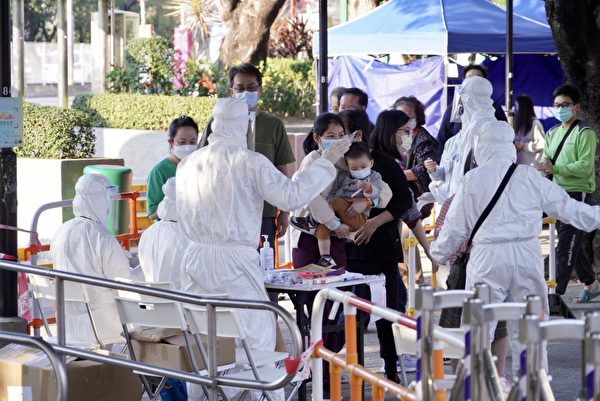
The fifth wave of the epidemic in Hong Kong continues to get out of control. Today (March 4), another 52,523 confirmed cases have been added, and the number of new cases has exceeded 50,000 for three consecutive days. The cumulative number of confirmed cases in this wave has reached 390,449.
Au Ka-wing, chief doctor of the Infectious Diseases Division of the Centre for Health Protection of the Hong Kong Department of Health, said that there were 52,523 new confirmed cases on March 4, of which only 11 were imported cases and the rest were local infections. Of these, 1,653 were suspected of being infected with Omicron. The total number of confirmed cases in this wave of the epidemic has reached 390,449.
The Hong Kong Hospital Authority reported that in the past 24 hours, 136 people died, involving 76 men and 60 women and girls aged 29 to 102, of which 131 were elderly people aged 65 or above. Of the 47 deaths, 5 were found to be Delta and 42 to be Omicron after analysis. The remaining cases are still under analysis.
Li Liye, Chief Administrative Manager (Integrated Clinical Services) of the Hospital Authority, said that so far, a total of 7,360 patients have been admitted to the North Lantau Hospital Hong Kong Infection Control Centre, the Hospital Authority Infectious Disease Centre, the AsiaWorld-Expo Community Treatment Facility and public hospitals. Receiving treatment; more than 1,100 people in isolation at Penny’s Bay Community Isolation Facility. Li also pointed out that the utilization of isolation beds in public hospitals is 86.8%, which is already the upper limit for receiving patients.
Li Liye continued to point out that from next week onwards in the Kowloon West Hospital Cluster, internal medicine specialist outpatient clinics will only focus on emergency patients, appointments for non-emergency patients will be postponed, and specialist outpatient clinics will only recombine medicines for returning patients; allied health clinics will only process For the first priority case, the hospital will contact non-emergency patients in the next few days to arrange a follow-up period; general outpatient services will be adjusted; some telephone appointment services will be suspended.
Regarding the disposal of the remains, Li Liye explained that some freezers have already arrived, while others will be delivered within one or two days. It is believed that about 500 positions will be provided.
Belgium to lift almost all COVID restrictions
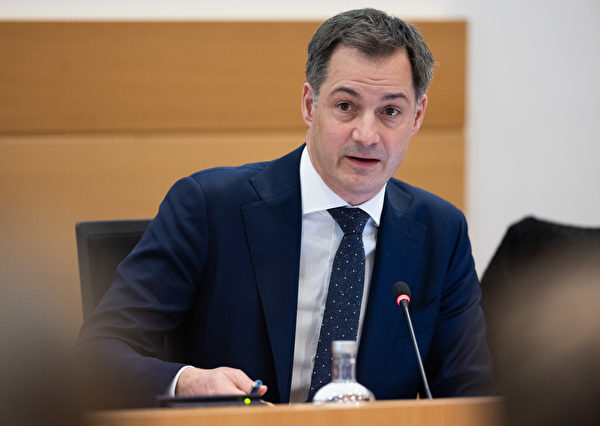
Belgium will start lifting almost all coronavirus restrictions starting Monday (March 7), ending the requirement to wear masks in basically all places and removing the requirement to show COVID-19 passes in indoor venues from cafes to gyms.
Belgian Prime Minister Alexander De Croo said Belgium had eased measures significantly for the first time in nearly two years since the outbreak hit.
“I think this is an important page that we’re turning. It’s mostly a symbol of our resilience and perseverance in the face of a pandemic that has given us little chance to rest,” he told a news conference.
From Monday, Belgians who want to dine in restaurants, drink in bars, visit museums or cinemas will no longer need to present a COVID pass, proof of vaccination, recent recovery from infection or a negative test. Neighboring France also plans to start easing restrictions on March 14.
Beginning Monday, masks will be mandatory only on public transport, hospitals and nursing homes. Capacity restrictions on indoor venues will also be lifted.
Belgians returning from other EU or non-EU countries where the outbreak has been brought under control will also no longer need to fill out a special COVID form.
The number of COVID infections has fallen from a record level of more than 75,000 at the peak of the Omicron mutation surge on January 24 to an average of about 6,000 per day in the week to February 28, one of the lowest per capita infection rates in Europe one.
Hospitalizations, intensive care patients and deaths also fell sharply, not reaching the peaks of the previous wave.
England’s COVID-19 prevalence drops, infection rates flat
The prevalence of COVID-19 in England fell to one in 30 in the week to February 26, the Office for National Statistics (ONS) said on Friday (March 4), down from the 25 recorded the previous week. one.
Estimates for the “R” value for COVID-19 replication in England range from 0.8 to 1.0, the UK Health Security Agency said on Friday, broadly stable from the previous week’s range of 0.7 to 1.0.
An R value between 0.8 and 1.0 means that for every 10 people infected, they infect an average of 8 to 10 people.
Thailand’s public hospitals add COVID-19 clinics to ease medical pressure in Bangkok
The number of confirmed cases of COVID-19 in Thailand has increased rapidly in recent days. In particular, more than 100,000 people in the capital Bangkok are quarantined at home or in community centers. The Thai government has set up specialized clinics in public hospitals in various provinces around Bangkok to ease the pressure on Bangkok’s medical resources.
Thailand today (March 4) reported 54 new deaths from COVID-19 and 23,834 confirmed cases of nucleic acid testing, while the number of rapid screening cases reached 31,571, the Central News Agency reported.
Thailand is expected to declare that COVID-19 has turned from a pandemic to an endemic within 4 months. The government allows asymptomatic or mild patients diagnosed by rapid screening to go directly to the hospital outpatient clinic for medical treatment and return home to take medicine for recuperation. People with symptoms or mild symptoms can also call 1330, the outbreak line set up by the National Health Security Office, to request medical resources during home isolation.
Due to the rapid spread of the variant virus Omicron, the number of confirmed cases in Thailand has increased rapidly in recent days. Taking yesterday as an example, there were 101,172 people in Bangkok and 26,601 people in community isolation centers.
The Bangkok Post (Bangkok Post) and Thai PBS (Thai PBS) reported that Kiattiphum Wongrajit, Permanent Secretary of the Ministry of Public Health, said yesterday that there are about 50,000 people in Bangkok waiting for resources for home isolation treatment. To ease the medical pressure in the capital, the Ministry of Public Health has set up acute upper respiratory infection clinics in public hospitals in 14 provinces around Bangkok.
The acute upper respiratory infection clinics in the 14 provinces, which can treat about 18,650 people a day, are expected to ease medical needs in Bangkok within two weeks after launching the program today, Chitip said.
U.S. waives COVID testing for Americans leaving Russia, Belarus
The U.S. State Department said on Thursday (March 3) that the United States is waiving the requirement to test negative for COVID-19 for Americans leaving Belarus or Russia.
Belarus and Russia: @CDCgov has exercised its enforcement discretion to allow certain persons from Russia and Belarus to travel to the United States without a pre-departure COVID-19 test. For more info: https://t.co/IQUgEbiXiL.https://t.co/WP4vdWxSiM https://t.co/dCKteU7eyf pic.twitter.com/3omKVhfW9Y
— Travel – State Dept (@TravelGov) March 4, 2022
The U.S. Centers for Disease Control and Prevention (CDC) said it will exercise its discretion to allow U.S. citizens, permanent residents and holders of valid immigrant visas in the aforementioned countries to travel to the U.S. before the Feb. 28 deadline.
Earlier, the CDC made a similar waiver for Americans who left Ukraine before February 10.
CDC: More than 90% of the United States does not require masks
The Centers for Disease Control and Prevention (CDC) said on Thursday (March 3) that about 93% of people in the United States live in areas with a low risk of COVID-19 and people do not need to wear masks indoors.
On Friday, the CDC significantly relaxed its COVID-19 guidance on when Americans should wear masks indoors, saying mask orders could be ended in counties with a low or moderate risk of COVID-19.
The latest data from the CDC is a sharp increase from a week ago, further suggesting that COVID hospitalizations continue to decline. The number of hospitalizations is a key indicator of whether the mask order can be ended.
In announcing the revised guidance on Friday, the CDC said that about 70 percent of U.S. counties and 72 percent of the population are in communities where masks are no longer recommended indoors. The CDC plans to update its county-level ratings on a weekly basis.
The agency said Thursday that 85.4 percent of counties are now classified as low or moderate risk, and 92.9 percent of the population lives in those counties.
What remains to be determined is whether a Biden administration will expand mask-wearing requirements for transportation hubs, as well as on planes, trains and buses. The current mass transit mask order expires on March 18, but can be extended. The White House said this week it was evaluating the issue.
The mask-wearing guidelines announced last week shifted from focusing on COVID-19 transmission rates to local hospitalizations, hospital capacity and infection rates.
This week, a growing number of federal agencies have told government employees that they can avoid wearing masks in federal buildings in Washington, D.C. and other low- or moderate-risk areas of COVID, including the State Department, Pentagon, Department of Transportation, Federal Aviation Administration and Justice Department Department.
In counties with low community COVID risk, federal agencies also do not need to routinely screen unvaccinated employees for COVID-19, the CDC’s guidance says.
Under the shadow of the epidemic, South Korea’s presidential election begins early voting
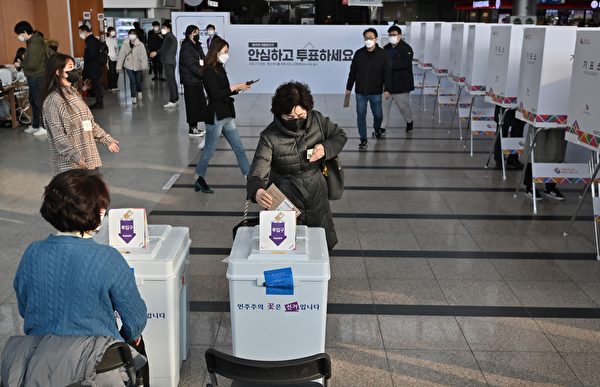
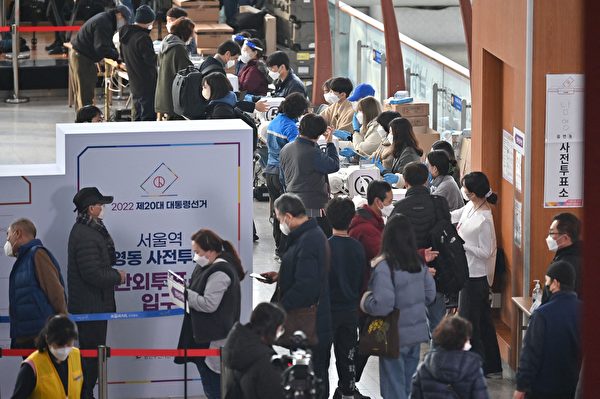
As the epidemic continues to spread in South Korea, early voting for the presidential election begins today (March 4).
According to the National Electoral Commission, election workers have been equipped with protective gear, including full-body suits and safety glasses, and voters who have contracted the new coronavirus or have been exposed to the virus will be sprayed with hand sanitizer and gloves before voting.
With more than 80 people currently being treated at home for the coronavirus and nearly 800 in hospital intensive care units, government and health officials have been seeking ways to make it safe for infected voters to vote, and last month even revised electoral law.
People who are infected or quarantined can walk or take a taxi or ambulance provided by the local office to the polling station and vote at the quarantined polling station. Their voting time is allocated one hour before the end of the second day of early voting and one and a half hours on the last day of voting.
South Korea has had early success in containing the outbreak and surge in cases through aggressive testing and contact tracing. While the government’s containment measures have not been the main focus of the campaign, the surge in Omicron over the past week is affecting voting. South Korea reported 266,838 new cases and 184 deaths on Friday, setting a new record for daily new cases and deaths.
Yin Xiyue, one of the main candidates, representing the National Power Party, won the backing of another candidate yesterday, a move that could skew the balance of the bitterly contested election. The candidate of the ruling Common Democratic Party of the current President Moon Jae-in is Lee Jae-myung.
The election will focus on electing a leader to clean up South Korea’s current polarized politics and corruption, and to address issues such as runaway housing prices that plague the population.
Yin Xiyue encouraged those infected with COVID or quarantined to vote, saying they could number in the millions of the more than 40 million eligible voters.
While containment measures haven’t stopped large campaign rallies, leading presidential contenders have gone on “no-contact” campaigns. Lee Jae-myung meets supporters at a drive-in movie theater.
Yin Xiyue’s opposition party has launched a mobile app that allows voters to watch its candidate’s campaign rallies.
But despite the surge in cases, South Korea has lifted some restrictions in recent days and suspended the use of an electronic contact tracing program.
In South Korea, which held national elections in 2020 and regional polls last year, infected people were asked to mail ballots or use special polling booths in hospitals. At the time, the daily number of infections was in the hundreds, while daily new cases topped 200,000 this week.
“The situation has changed a lot since the last election, with far more cases,” said an epidemic prevention official. “Their political rights must be protected.”
Taiwan added 64 confirmed cases, 2 local and 62 imported cases
Taiwan’s Central Epidemic Command Center announced today (March 4) that there were 64 new confirmed cases of COVID-19, including 2 local cases and 62 imported cases (23 were positive for flight landing tests). Added death.
The command center said that the new local cases today are one male and one female, aged between their 30s and 40s.
According to the command center, today’s new cases of immigration from abroad are 33 males and 29 females, aged between 5 and 60 years old, from Vietnam (6 cases), the United States, India and the Philippines (4 cases each), Indonesia and Cambodia (3 cases each), Hong Kong, Australia and Japan (2 cases each), Argentina, Kyrgyzstan, Switzerland, the United Kingdom and Canada (1 case each), and another 27 cases are under investigation. The entry date is from January 19 to March 3, today (2022).
According to the statistics of the command center, up to now, there have been 20,717 confirmed cases in China, including 5,212 imported cases, 15,451 local cases, 36 Dunmu Fleet cases, 3 aircraft infections, 1 case unknown and 14 cases under investigation. Since 2020, a total of 853 COVID-19 deaths have been reported, of which 839 are local. The counties and cities where the cases reside are: 413 in New Taipei City, 322 in Taipei City, 29 in Keelung City, 28 in Taoyuan City, 15 in Changhua County, and 15 in Hsinchu County. 13 cases, 5 cases in Taichung City, 3 cases in Miaoli County, 2 cases each in Yilan County and Hualien County, and 1 case each in Hsinchu City, Nantou County, Yunlin County, Tainan City, Kaohsiung City, Pingtung County and Taitung County; 14 cases were imported from abroad.
Hong Kong’s epidemic situation is serious
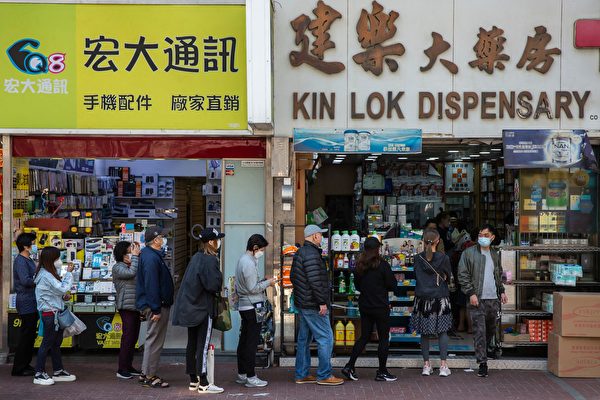
Some chain retail stores in Hong Kong imposed purchase restrictions on customers today (March 4) to prevent citizens from “blind grabbing” under the epidemic. These retail stores also called on citizens to consume rationally.
The Central News Agency reported that the COVID-19 epidemic in Hong Kong has become increasingly serious recently. Due to the increasing number of infected people, there is a shortage of manpower in all aspects. As a result, the supply of vegetables and meat in the vegetable market is not normal, triggering some citizens to switch to supermarkets to panic purchase. related food.
In addition, some people are rushing to buy medicines to treat fever, just in case.
Although the government, suppliers and supermarkets have all emphasized the sufficient supply of relevant goods and called on the public not to “blindly rush”, some supermarkets have been snapped up for the past few days.
In response to this situation, Parknshop, one of the large local supermarkets, has restricted the purchases of citizens from today. Customers can purchase up to 5 pieces of rice, canned food, pasta, boxed eggs, toilet paper and medicines per transaction.
Another retail chain, Watsons, also limited the number of anti-fever and cold medicines that citizens can buy to five per person at a time.
Baijia said externally that the supply of various food and daily necessities is stable, and it hopes that citizens can choose rationally.
Due to the shortage of staff due to the infection of employees, Parknshop announced earlier that all branches will be closed early, and some branches will close as early as 3 pm.
【Outbreak 3.3】Click here.
Responsible editor: Li Ling
![[Outbreak 3.4]Foreigners: Hong Kong is now like a prison | CCP virus | Wuhan pneumonia | New crown virus [Outbreak 3.4]Foreigners: Hong Kong is now like a prison | CCP virus | Wuhan pneumonia | New crown virus](https://i.epochtimes.com/assets/uploads/2022/03/id13621617-GettyImages-1238870553-700x359.jpg)